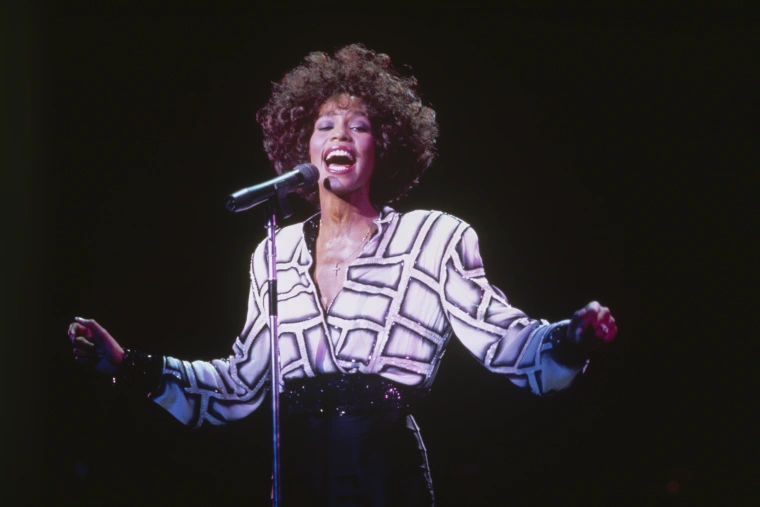Whitney Houston, born on August 9, 1963, in Newark, New Jersey, was an American singer, actress, and producer who reigned as one of the most influential and celebrated figures in the music industry during her career. Her powerful voice, range, and emotional depth set her apart as one of the greatest vocalists of all time. Houston’s music transcended genres, touching the hearts of millions worldwide and leaving an indelible mark on the landscape of popular music.
Early Life and Career Beginnings
Whitney Houston was the daughter of singer Cissy Houston and the cousin of Dionne Warwick. Music was deeply ingrained in her upbringing, and she began singing in church as a young girl. Her exceptional talent was evident early on, and she pursued a career in entertainment, working as a fashion model and a background singer before her big break.
In 1983, Houston signed with Arista Records, and her eponymous debut album was released in 1985. The album became an instant success, producing hits such as “Saving All My Love for You,” “How Will I Know,” and “Greatest Love of All.” These tracks showcased her incredible vocal range and ability to connect with listeners on a profound emotional level. The album became one of the best-selling debut albums of all time, earning Houston a Grammy Award and solidifying her status as a pop icon.
Global Superstardom
Throughout the late 1980s and 1990s, Whitney Houston continued to dominate the music charts with her subsequent albums, including “Whitney” (1987), “I’m Your Baby Tonight” (1990), “The Bodyguard: Original Soundtrack Album” (1992), “Waiting to Exhale” (1995), and “The Preacher’s Wife” (1996). Each album further demonstrated her versatility as an artist, with Houston effortlessly transitioning between pop, R&B, gospel, and movie soundtracks.
The soundtrack for “The Bodyguard,” in which Houston starred alongside Kevin Costner, became the best-selling soundtrack of all time, featuring the hit single “I Will Always Love You.” This song, originally written and performed by Dolly Parton, was transformed by Houston into a powerful ballad that resonated with audiences worldwide, showcasing her unparalleled vocal prowess.
Acting Career and Philanthropy
In addition to her musical accomplishments, Whitney Houston also pursued an acting career, starring in movies such as “The Bodyguard,” “Waiting to Exhale,” and “The Preacher’s Wife.” Her performances were well-received, further cementing her status as a multi-talented entertainer.
Houston was also known for her philanthropic efforts, supporting various causes including children’s charities, education, and disaster relief. Her commitment to giving back reflected her compassionate nature and desire to use her platform for positive change.
Personal Struggles and Legacy
Despite her professional success, Whitney Houston faced personal challenges, including a highly publicized marriage to Bobby Brown and struggles with substance abuse. These issues impacted her career and personal life, leading to a period of decline in the early 2000s.
Houston attempted a comeback in the late 2000s, performing in concerts and working on new music. However, her life was tragically cut short on February 11, 2012, when she was found dead in her hotel room in Beverly Hills, California. Her death was a shock to the world, prompting an outpouring of grief and tributes to her legacy.
Whitney Houston’s influence on music and culture remains undiminished. She won numerous awards, including Grammys, Emmys, and an American Music Award for Artist of the Decade. Her voice, with its unique blend of power, grace, and emotion, continues to inspire new generations of artists. Houston’s life and career are a testament to her enduring talent and the profound impact she had on the world of music.
In conclusion, Whitney Houston was more than just a singer; she was a cultural icon whose voice and spirit touched the lives of millions. Her legacy is a reminder of the power of music to unite, inspire, and transcend the barriers of time.
